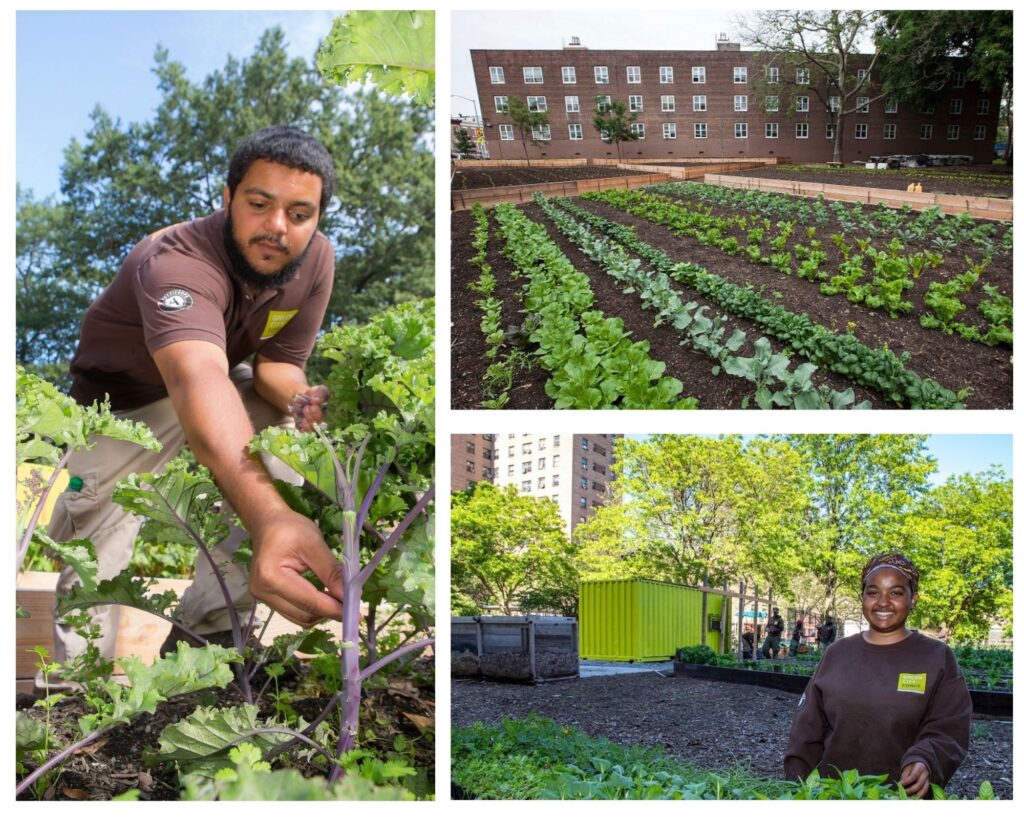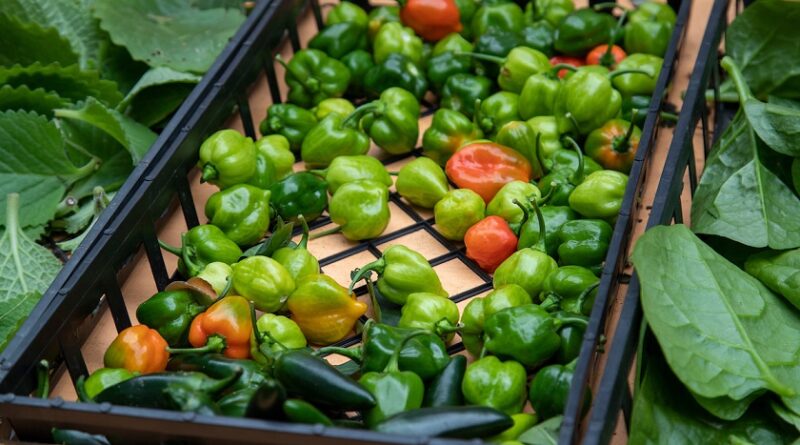A Fruitful Endeavor: Farms at NYCHA
In 2021, NYCHA farms produced 22,000 pounds of organic fresh vegetables, greens, and herbs. There are currently seven farms on the Authority’s open spaces. The inaugural farm at Red Hook Houses was launched in 2013. The other six farms are located at Wagner Houses, Howard Houses, Bay View Houses, Forest Houses, Mariners Harbor Houses, and Pink Houses.
Farms at NYCHA is an urban agriculture initiative grounded in public housing resident leadership and community partnership. The farms expand healthy food access and provide youth workforce and leadership development.
Andrea Mata, NYCHA’s Director of Health Initiatives, said that the very first farm was created through collaboration focused on goals aligned with NYCHA’s Connected Communities initiative: “The idea was to build an outdoor community center. Farms produce something tangible (food) that can be used by the community, but they also activate open space that can bring the community together for many different purposes that respond to local priorities.”
Green City Force (GCF), which is the largest Farms at NYCHA partner, manages five farm sites as Eco-Hubs – closed-loop systems supporting sustainability and health in NYCHA developments. Resident engagement is a key component of the hubs – the farms are constructed and operated by 18- to 24-year-old NYCHA residents who are GCF AmeriCorps members. Through the initiative, young residents are building and maintaining farms on public housing properties to serve fellow residents.
Annel Cabrera-Marus, Chief Program Officer at GCF, said there are 225 resident-volunteers at their sites, which helped the organization provide organic produce to 2,300 residents. “Eco-Hubs are essential for building strong community ties for our young people and their neighbors,” said Ms. Cabrera-Marus. “Members learn fundamentals of gardening and hard skills in urban agriculture and green infrastructure maintenance. They get a deeper understanding of sustainable communities rooted in social, economic, and environmental justice.”

Farms at NYCHA became a critical food security support during the pandemic. In 2021, residents continued to enjoy popular produce items such as collard greens, tomatoes, peppers, eggplant, and okra. Throughout the whole harvest season from May through November, residents received free produce in exchange for volunteering on the farm or bringing household food scraps to the farm stand each week. In total, NYCHA farms collected 3,460 pounds of organic waste during the last year, food scraps that will be transformed into soil to nourish the farms in years to come. Some of the farms also have areas reserved to plant seeds that residents bring to the site – often new crops that increase agricultural diversity.
NYCHA farms also organize various community events. In 2021, 231 community events were held at NYCHA farms. This includes the popular harvest festival and the return of school and day camp visits that were largely suspended in 2020. “The potential to promote community health and leadership in sustainability while addressing food insecurity is really limitless,” noted Ms. Mata.
In its Sustainability Agenda, NYCHA included a goal to expand to 15 farm sites within five years, ensuring there are at least two farms in each borough. In 2022, the first partner-led NYCHA farm site will be established in Queens. The Authority will also work with existing partners to explore new farm models, including those that incorporate entrepreneurship, composting, and greenhouses.
Photo Caption: GCF AmeriCorps members at NYCHA farms (photos were taken pre-COVID-19).

